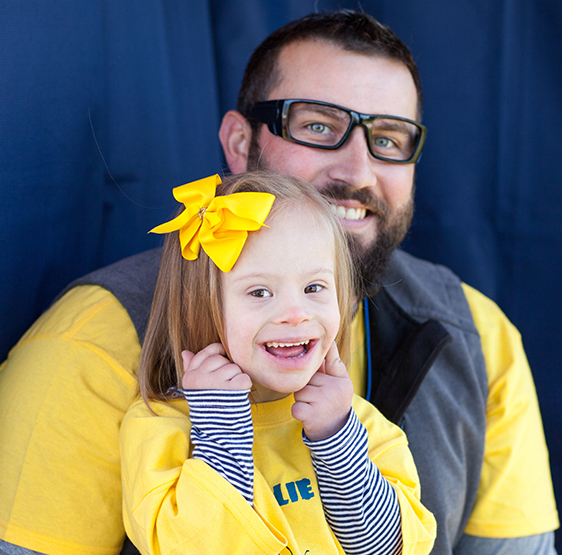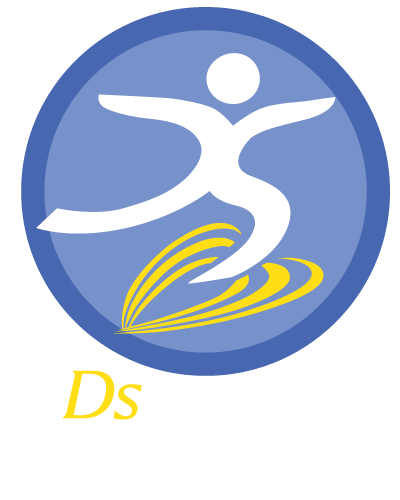Down syndrome & Getting Educated
Words Can Hurt
Everyone knows words can hurt. For people with Down syndrome and their families, the history of “labels” is not a pleasant one. People with Down syndrome used to be labeled “idiots, morons,” and “imbeciles” by both society and the medical profession. The label evolved into “Mongoloid, handicapped, mentally retarded, retarded,” and then for short, “retard.”
Today, these labels are considered politically incorrect, hurtful and dehumanizing. As award-winning actor, parent-advocate, and Global Down Syndrome Foundation International Spokesperson, John C. McGinley has said, there is no difference between derogatory words used to label ethnic or religious minorities and the words used to label people with Down syndrome. As with people advocating for ethnic or religious minorities, there is a movement (led by Special Olympics) to end the use of derogatory words such as the “R” word – ‘retard.’ You can join the movement or learn more by clicking here.
What Words Should We Use?
Renowned educator and inclusion specialist Patti McVay emphasizes “the best name to call someone is the name he or she was born with.” Many organizations, including the federal government and the National Institutes of Health, have gone back to scrub their old records of the word “mentally retarded” and have replaced it with “intellectually and developmentally disabled,” with the acronym of IDD. Other organizations are using cognitive disability, intellectual disability, or developmental disability. Still others use the word “challenged” instead of disability. There are subtle differences in the definitions based on each organization and even by state, but most importantly any of these terms are accepted as appropriate by the community being defined. For the Global Down Syndrome Foundation, we like to take it a step further and talk about our community as “differently-abled.”
Words You Should NOT Use
Down syndrome is named after a doctor in the UK named John Langdon Down. Originally, it was referred to as his syndrome – Down’s syndrome. In the UK, Europe and many other countries, the correct term still remains “Down’s Syndrome.” In the U.S., it was changed to Down syndrome (drop the possessive) as to emphasize that it was not Dr. Down who had the syndrome nor was it his.
People who are differently-abled and their families have a lot to offer society. Down syndrome is not a disease but rather a genetic condition whereby a person is born with three copies of chromosome 21 versus two. For these reasons, many, but not all families, take offense to the following terms being used in conjunction with Down syndrome:
Disease – it is not a disease
Cure – while the overwhelming majority of individuals with Down syndrome and their family members would want to improve the health outcomes of individuals with Down syndrome, including cognition, many families are offended by the word “cure” because the word is imbued with negative connotations and the word:
- relates to a disease
- has been used synonymously with abortion and termination
- implies a radical change to who a person is
Suffer from or afflicted by – people with Down syndrome may have medical issues or intellectual and developmental delays that are clearly associated with the condition, however, many families feel their loved one with Down syndrome does not suffer from Down syndrome but rather from medical issues surrounding the syndrome or from incorrect medical treatment or timing.
The Global Down Syndrome Foundation recommends people NOT to use any of the terminology above with families or individuals with Down syndrome.
People First Language
The renowned educator and inclusion specialist, Patti McVay, often provides this useful exercise:
- Think of something that you don’t like about yourself that society has also deemed less desirable.
- Now take that word and put it in front of your name and imagine being called that word plus your name all your life.
- For me, the word “fat” comes to mind. The idea that I could be called “Fat Patti” all my life isn’t somewhere I’d like to go…
Below are some ways you can consider talking about people with Down syndrome to the extent you need to bring up the condition at all:
- people with/who have Down syndrome, people who happen to have Down syndrome
- children with/who have Down syndrome, children who happen to have Down syndrome
- adults with/who have Down syndrome, adults who happen to have Down syndrome
- individuals with/who have Down syndrome, individuals who happen to have Down syndrome
- people/children/adults/individuals with Down syndrome and their families
If we want society to embrace people with Down syndrome, it is important that our community is kind, inclusive and ready to educate.


